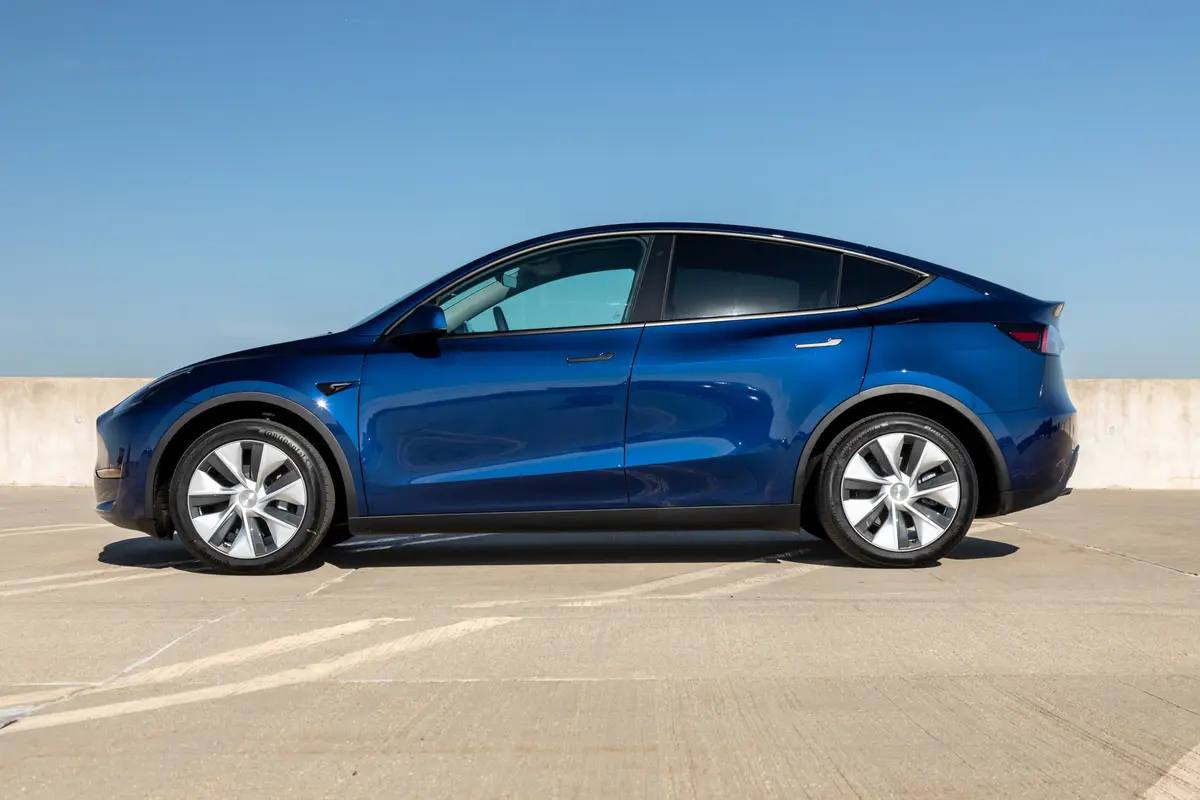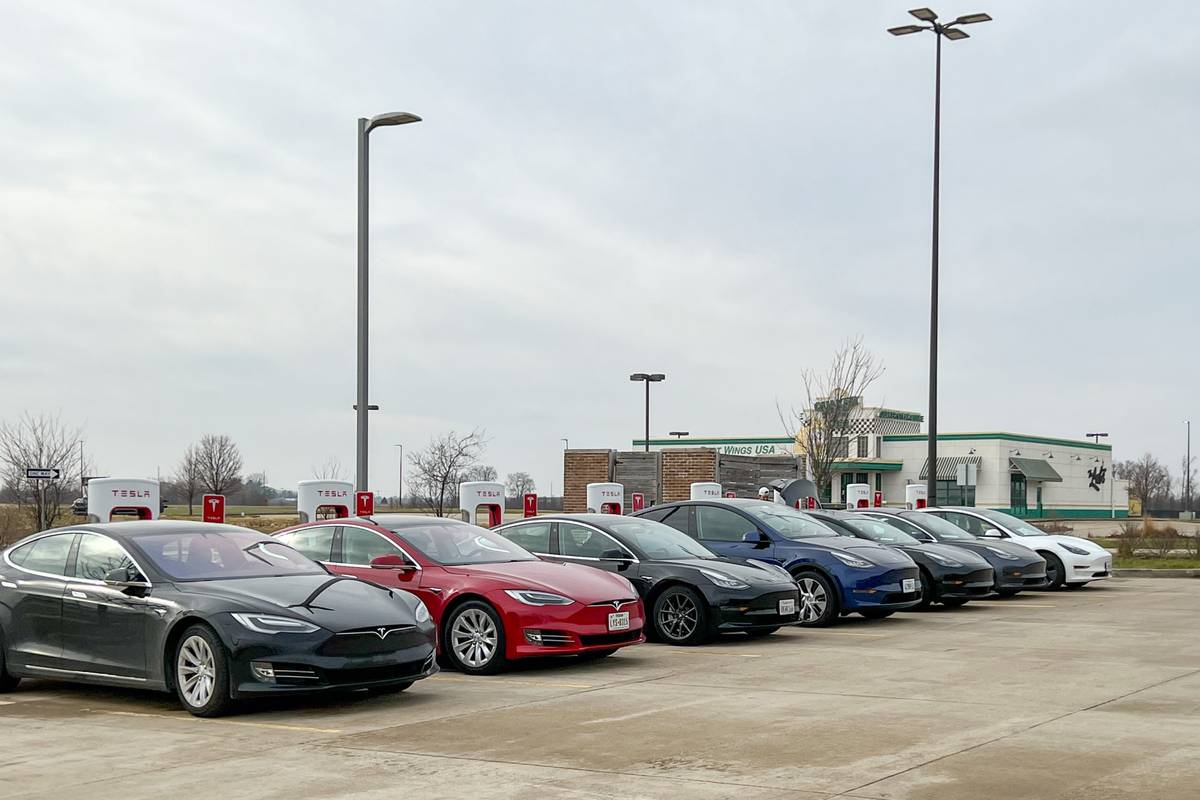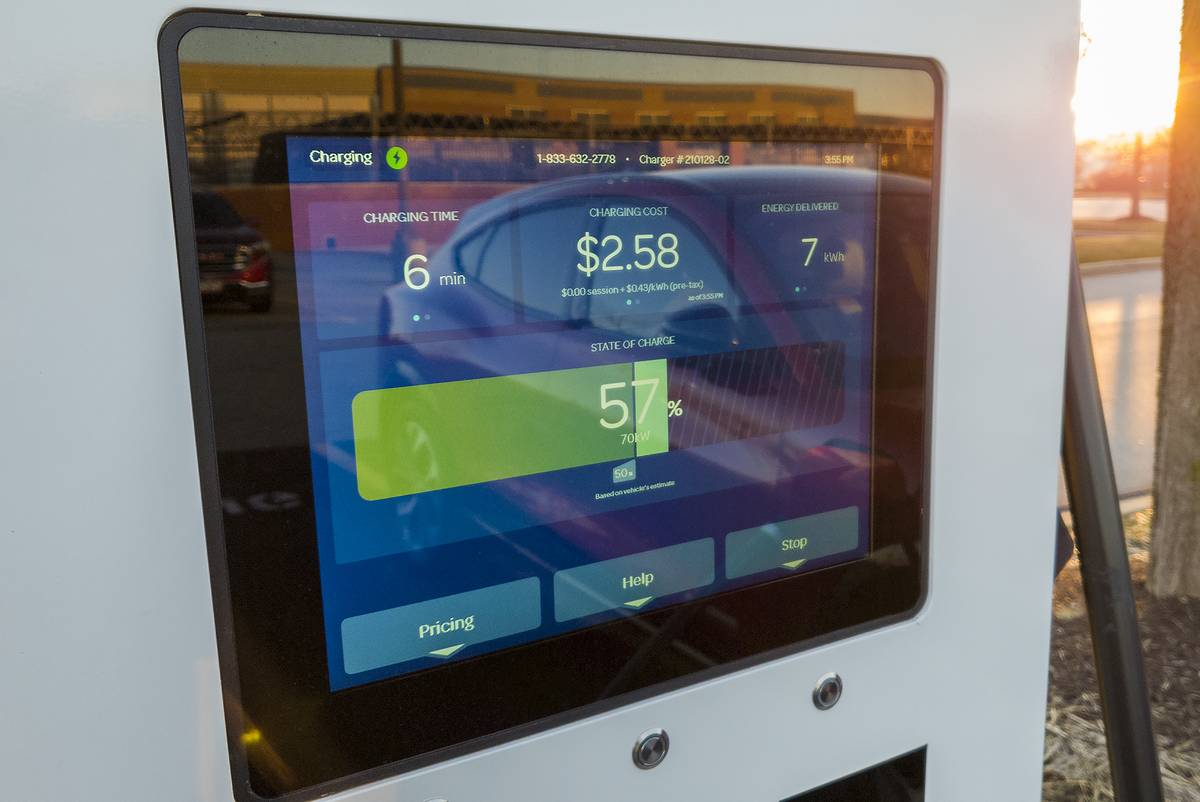How Much Does It Cost to Charge an Electric Car?


Prospective electric car owners gotta know, “Will my electric bill go through the roof when I charge at home?” After all, you’re plugging a battery literally the size of a Volkswagen into your house, so it must make the electric meter spin like when Clark Griswold plugged in a million strands of Christmas lights, right?
Well, an EV can become one of the power-hungriest things attached to your house, but don’t forget that your gasoline budget will probably go down at least as much, and possibly considerably more. How much extra an electric vehicle will increase your electric bill depends on many factors, but fear not: It’s easily determined and likely won’t result in the doubling or tripling of the average electric bill.
Related: 5 Things That Could Slow Your EV’s Home Charging Speeds
How Much Does It Cost to Charge an EV at Home?
To get a rough estimate of how much an electric car will increase your monthly electric bill, you need to know the following:
- Number of miles driven per month
- Efficiency of the EV measured in kilowatt-hour per mile, found on gov
- Local cost per kWh, measured in cents
Even then, cost will vary based on other factors, but we can get you in the ballpark. Electricity consumption is measured in kWh, as opposed to gallons of gasoline in a traditional car. A kWh is a quantity you should be familiar with if you’ve ever looked at your home electric bill. To get an accurate cost per kWh, take the overall cost of electricity on your last bill and divide by kWh used, which will take into consideration all fees and charges that come with delivering electricity to your home. The end number should look something like $0.1375, or 13.75 cents per kWh, which is the last reported national residential average from December 2021, according to the Energy Information Administration. To account for month-to-month changes in the electric rate or other billing variations like metering or fees, you might want to do the same calculation for a few different monthly electric bills to get a more accurate average.

With the known cost of energy, we can figure out how much it costs to charge a popular EV like the Tesla Model Y Long Range All-Wheel Drive. This model is rated by the EPA to use 28 kWh to travel 100 miles, which works out to 0.28 kWh per mile if you move the decimal two places. From here, you can multiply the consumption of 0.28 kWh per mile by how many miles you drive per month to see total kWh consumption. In this estimate, the EPA includes vehicle consumption as well as charging losses; there are energy losses when taking power from the grid and transferring it to the battery, so you’re paying more than simply what the car is using. Driving 1,000 miles per month (a nice round number we’re using for easier visualization), you’d take 0.28 kWh x 1,000 miles to get an overall consumption of 280 kWh, then multiply that by the rate of $0.1375 per kWh to get the total cost of $38.50 for a Model Y Long Range AWD to drive 1,000 miles per month. Voila!
Factors That Could Increase Your Monthly Electric Bill
An extra $38.50 per month to charge an electric car at home would be a 33% increase on the average electric bill, according to stats from the Energy Information Administration. Less than $40 to drive 1,000 miles is impressive, but that could increase or decrease depending on how much you drive, as well as if you live in an area with costlier or more affordable electricity rates. In California, the average kWh rate was 23.76 cents in November 2021, which would raise the monthly cost to $66.53 per month with all other factors remaining the same.
A less efficient EV could also cost more to drive. An EV rated with lower efficiency like the Audi E-Tron Quattro at 0.43 kWh per mile (versus 0.28 kWh of the Model Y) would increase the cost from $38.50 to $59.13 based on the national average because it uses more energy to travel the same distance.
The above examples are best-case scenarios, meeting EPA-rated efficiency. In reality, EV efficiency changes based on the conditions in which you drive (vehicle load, elevation changes, temperatures) just like in a regular gas-powered car.
How Much It Cost to Recharge Our Tesla Model Y
We purchased a Model Y Long Range in November, and our total charging costs of $183.90 to travel 2,011 miles paints a less rosy, though more realistic, picture of how much it costs to recharge an EV, including DC fast charging for long-distance drives. In our first four months of ownership, we spent an average of $45.98 per month, which is close to the figure estimated above — but it was based on 503 miles per month, only half the miles in the estimate. In reality, our cost was more than double the estimate. Why the difference? Our 505 miles included some more expensive DC fast charging (Tesla Supercharging), plus energy losses from home charging. We saved a buck or two from the occasional Level 2 free charger at retail stores, which typically paid only for the short trip.

About 1,300 miles of our 2,011 miles spent driving has been fueled by home charging at a cost of $79.21, and the bulk of our Supercharging costs ($104.69) came from roughly 700 miles on a single road trip that took four stops at Superchargers. Our long-term Model Y has also been mostly driven in cold weather with frequent cabin preconditioning (plugged and unplugged); that shows in its efficiency, averaging 31.2 kWh per 100 miles (or 0.312 kWh per mile), which is more energy to travel the same distance compared with the EPA rating of 28 kWh per 100 miles (0.28 kWh per mile).
Looking at our home-charging efficiency also tells us where some of the costs have gone. Charging efficiency is the measure of the total energy used in the charging process versus energy added to the battery — ideally, 100% with no losses to heat or battery conditioning — but has ranged from 69% to 96% for longer charges according to the TeslaFi data logger we use to record all charge sessions.
What that means is during home charging we’ve used 672 kWh of energy to fill the car’s battery with 547 kWh, or an extra 127 kWh simply to facilitate charging, which comes out to $17.46 at the average kWh cost. DC fast charging has proven a more efficient charging method with the five total sessions ranging from 97%-100% efficiency, which isn’t surprising because converting home AC to DC onboard the vehicle to charge the battery always represents energy loss. But fast charging comes with its own cautions about battery health and cost.
More From Cars.com:
- Best Electric Vehicle of 2022
- Here Are the 11 Cheapest Electric Vehicles You Can Buy
- Electric Cars With the Longest Range
- Are Electric Cars Better for the Environment?
- More Electric Car News
How Much It Costs to DC Fast-Charge an EV
DC fast charging can eat away at potential fuel savings, costing more than double or triple that of home charging. Note that “fast charging” is speedy relative to home charging but still doesn’t come anywhere close to the expediency of filling up an internal-combustion vehicle at a gas station. Our stance is that Level 2 home charging is best suited for EV ownership and fast charging should be reserved for road trips or emergencies.

Tesla Supercharger billing rates vary by location, and in our experience mostly throughout Illinois, we’ve been billed 30-37 cents per kWh using Tesla’s 150- or 250-kilowatt Superchargers; a kW is the measure of power and charging speed potential. Our Model Y’s most expensive Supercharger fill-up cost $19.72 (including taxes) to add 69% to its battery capacity (from 26% to 95%) and 235 miles of range in 49 minutes; see what we mean about fast charging not being as fast as filling up? Along with the charger itself, charging speed depends on ambient weather conditions, vehicle conditions and the battery’s state of charge, typically slowing as the state of charge reaches 80%; that meant holding out for 95% because we were on the road and needed maximum range.
In Illinois, Electrify America bills 43 cents per kWh for guests and 31 cents per kWh for paid members; EVGo bills between 22 and 29 cents depending on membership status; those billing rates can change based on location. Not all DC fast chargers are created equal, as charger speed can vary from 24 kW to 350 kW, and not all cars are compatible with the fastest speeds or come close to their marketed capability in practice (but that’s another story). The comparison is to 14 cents per kWh at home for a maximum 19.2 kW charge speed. Often, though, automakers offer limited complimentary DC fast charging, by years or with a kWh cap.
Tesla Superchargers and other fast-charging networks like Electrify America and EVGo bill by kWh whenever possible, but you may also be billed by the minute depending on state regulations. According to Electrify America, “We believe pricing on a per-kWh basis offers a fair and consistent charging experience to EV drivers. We are working with regulators to follow the various processes that are required for us to provide EV charging on a per-kWh basis.”
Exclusively using DC fast chargers when it’s not complimentary — as with our Model Y — would shrink cost savings versus charging at home. Frequent DC fast charging is also not recommended as it can degrade battery health more quickly. Exclusively Supercharging would cost $84 to drive a Model Y 1,000 miles at $0.30 per kWh, versus $39.54 at home, using EPA combined efficiency figures.
Electricity Vs. Gasoline Costs
When charging at home, EVs are more affordable to refuel versus comparable gasoline cars, but don’t confuse that with electric cars being immediately cheaper to own because, at the moment, the extra expense related to buying an EV and installing home-charging equipment doesn’t make a quick payoff a sure bet. Relative to your existing electrical bill, charging an EV could mean a sharp increase, but in most cases, the cost is considerably lower than fueling a gasoline-powered car. The Department of Energy says on average, it costs about half as much to drive an EV versus a comparable gas car.
Editor’s note: This story was updated March 11, 2022, to clarify that the EPA’s consumption estimates include charging losses.
Related Video:
Cars.com’s Editorial department is your source for automotive news and reviews. In line with Cars.com’s long-standing ethics policy, editors and reviewers don’t accept gifts or free trips from automakers. The Editorial department is independent of Cars.com’s advertising, sales and sponsored content departments.

Managing Editor Joe Bruzek’s 22 years of automotive experience doesn’t count the lifelong obsession that started as a kid admiring his dad’s 1964 Chevrolet Corvette — and continues to this day. Joe’s been an automotive journalist with Cars.com for 16 years, writing shopper-focused car reviews, news and research content. As Managing Editor, one of his favorite areas of focus is helping shoppers understand electric cars and how to determine whether going electric is right for them. In his free time, Joe maintains a love-hate relationship with his 1998 Pontiac Firebird Trans Am that he wishes would fix itself. LinkedIn: https://www.linkedin.com/in/joe-bruzek-2699b41b/
Featured stories




